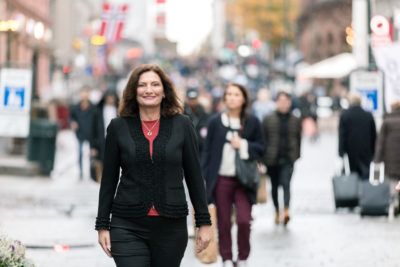More Norwegians are now acknowledging that immigrants face discrimination in Norway. A new survey by the country’s independent Institute for Social Research shows that the number of those who believe discrimination occurs “to a large degree” has tripled in the last six years.

That’s “record high,” Libe Rieber-Mohn, head of Norway’s state directorate in charge of integration and diversity IMDi, told newspaper Dagsavisen on Friday. The institute (ISF, Institutt for samfunns-forskning) carried out its survey at the request of IMDi (Integrerings- og mangfolds-direktoratet).
“One reason can be that there are more people in Norway now with immigrant background, and more of their stories have come forth,” Rieber-Mohn said. ISF’s Audun Fladmoe, one of the researchers and authors behind the new survey entitled Integration Barometer 2020, cited “more media attention around discrimination” as a possible reason for the increase. Fladmoe noted that there’s also been more research around discrimination and the employment process in Norway in recent years.
The vast majority of immigrants in Norway still come from Poland (115,400, according to numbers from state statistics bureau SSB). The next largest immigrant group is from Lithuania (47,400), followed by Somalia (43,400), Sweden (38,900), Pakistan (38,700), Syria (36,000), Iraq (34,300), Eritrea (29,100), Germany (28,300) and the Philippines (26,300).
Discrimination hinders integration
More than half of Norwegians polled responded that discrimination occurs “to a certain degree” in Norway, while 30 percent responded that it occurs “to a large degree.” More than 80 percent responded that they think discrimination occurs when job candidates are under consideration. Nearly 40 percent think it occurs when immigrants come in contact with the police.

Fully 60 percent believe discrimination also hinders the integration process in Norway, while just as many link the lack of integration to various immigrants’ religion or culture. When the researchers tried to determine what’s needed in order for immigrants to be viewed by Norwegians as well-integrated, the most important factors emerged as having a job and paying taxes, speaking Norwegian at home and respecting Norwegian laws and values. ISF’s findings noted that also involves not being very religious.
If an immigrant meets such criteria, an immigrant from Sweden is viewed as just as well-integrated as an immigrant from Somalia. If the immigrant fails to meet the integration standards held by a majority of Norwegians, however, the immigrant from Somalia will be viewed as far less integrated than the immigrant from Sweden. At the same time, the study showed that fully 86 percent of those questioned claimed that “racism upsets me.”
ISF’s research indicates that Norwegians have different views on immigrants based on the countries from which they’ve arrived in Norway. Many Norwegians also differentiate among immigrants who arrived as asylum seekers or through family reunification programs.
Need to address stereotypes and prejudice
Norwegians also tend to be harsher on those in immigrant groups that have attracted more negative attention, Fladmoe told Dagsavisen. When asked whether a Norwegian would consider moving if an immigrant from a certain country moved into the neighbourhood, Norwegians were most skeptical to those from Somalia. Nearly half responded they’d move, while a third said they’d move if someone from Pakistan moved in, and a quarter said they’d move if someone from Poland became a neighbour.
“The most important thing now is to break down the stereotypes and prejudices we have about others,” Rieber-Mohn told Dagsavisen. She said that “good role models and success stories” can help, but she also sees a need to take opposition to immigration and diversity in Norwegian society seriously. Integration needs to go both ways, with Norwegians willing to integrate immigrants and immigrants willing to become integrated.
If Norway is to succeed with integration efforts. “we have to understand (the opposition to immigration), in order to move forward,” Rieber-Mohn said.
The full survey is available here (external link, in Norwegian).
NewsInEnglish.no/Nina Berglund

